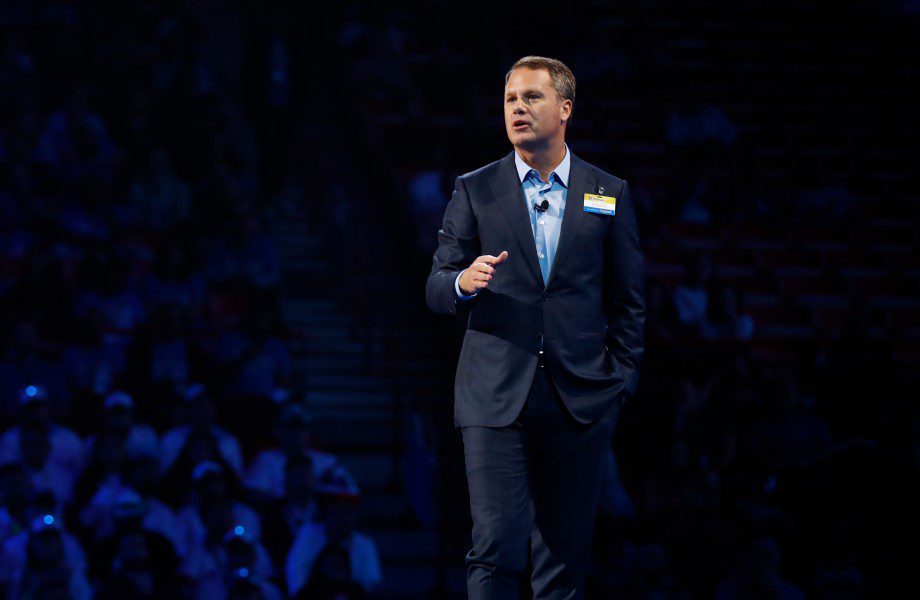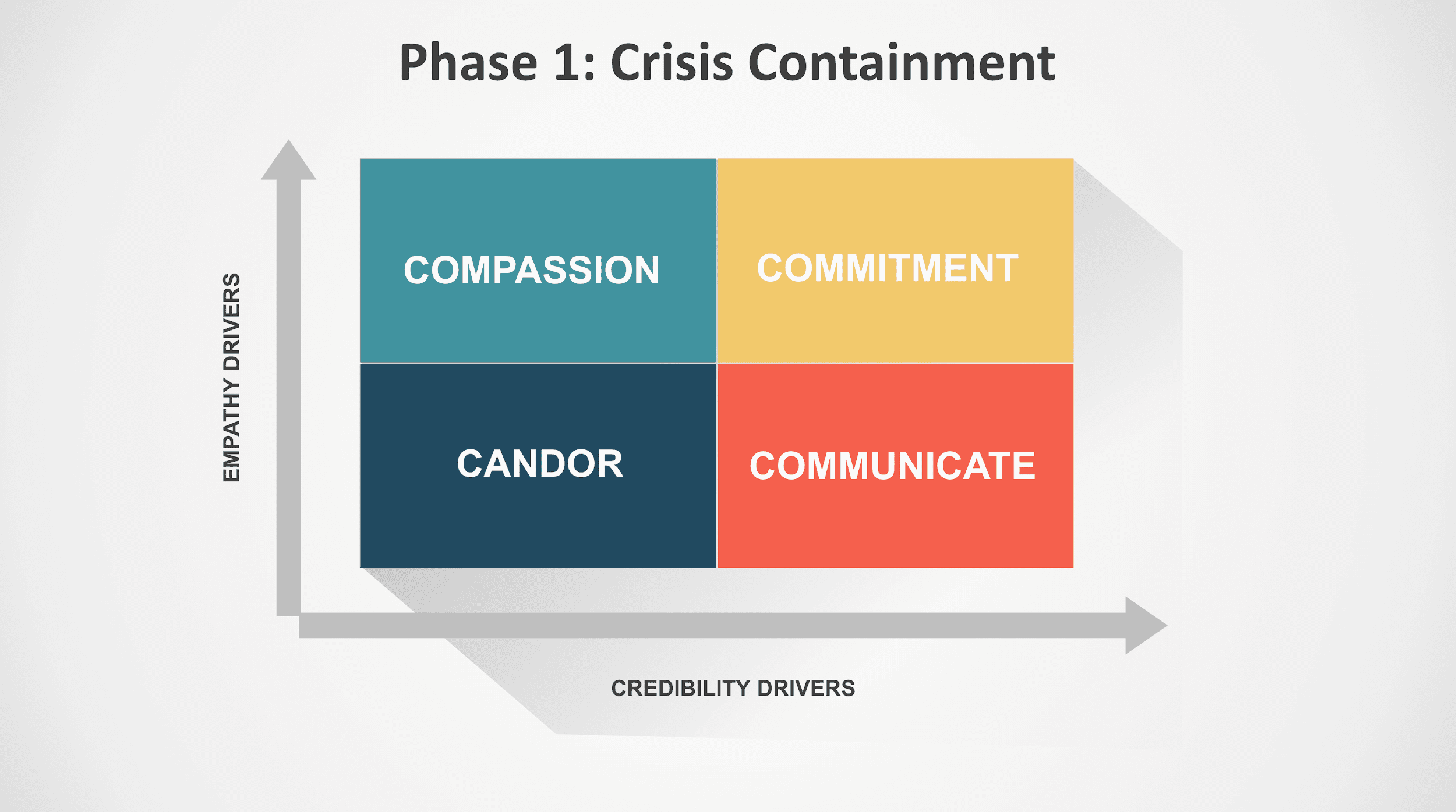
“…a man who lives the ideals of honor, courage and endurance in a world that is sometimes chaotic, often stressful, and always painful.”
— Ernest Hemingway, The Old Man and The Sea
When Hemingway uttered his trademark phrase, “grace under pressure,” I’m reasonably sure he had a fisherman in his mind and not the CEO of Walmart. Although we will never know if Doug McMillon was thinking of the author when he wrote the “letter to El Paso” to his Walmart associates, he echoed Hemingway’s spirit: ”When the worst happens, we counter with our best selves.”
A tragic crisis is daunting for reasons which are not so obvious. While the agony is unfolding, scandalmongers and virtue merchants are abuzz with advice which just happens to support their consulting practices or ambitions for tenure. Reporters find those precious clicks needed to impress producers, while the shame and blame mob clamors for a convenient scapegoat.
For instance, MSNBC news anchor Stephanie Ruhle breathlessly claimed on her broadcast after the shooting, “Walmart is America (because it is our largest employer) and one of the largest sellers of assault-style weapons.” Fact watchdog Politifact rebuked her: “Walmart is the largest private employer, but the retailer does not sell assault-style weapons. In fact, the company banned the sale of assault-style rifles in its stores in 2015.”
This kind of clickbait doesn’t help the cause if you are trying to manage a crisis, but for McMillon, public relations wasn’t the first priority. He did not have time to explain the complexity of gun ownership to a fearful public. His main job was to allay fears for employees and customers when they enter a Walmart store.

Crisis Containment
Crises are living things, and like humans, they can follow a wayward and unpredictable pattern if not dealt with at the start. It is why I created this simple chart that illustrates the four first steps of the “crisis containment stage”: compassion, commitment, candor, and communicate. Each step of crisis containment builds on the next, and although the steps may occur simultaneously, compassion will always be the first in line.
When I examined McMillon’s “letter to El Paso,” I was struck by the clarity and directness with which it hit all four. I annotated McMillon’s letter below to show how he embraced the 4Cs and made three points that supported each step in order to move a tragedy in the direction of a problem to be solved.
In a crisis, compassion comes easy. It is why the moment calls for genuine feelings, not boilerplate, as anyone who listens to presidential statements knows. When I read McMillon’s lines, they sound as if he wrote them himself, which I suspect he did:
• “I am in El Paso today, and I’ve met heroes.”
• “We heard incredible stories…from our Store Manager, Robert, who ran back in when he heard the shots, to Gilbert and Lasonya, who helped dozens of customers to safety out the back of the store, to Mayra, bandaging wounds and helping customers escape.”
• “In so many ways, Walmart reflects the best of America — full of people from all walks of life going about the business of taking care of family and daily responsibilities, living their lives and chasing their dreams.”
“No battle plan survives first contact with the enemy,” Helmuth von Moltke, a 19th-century head of the Prussian army, famously observed. Walmart’s CEO Doug McMillon had no idea which way this is going to play out, but he knew he had to make a commitment that addressed their two main concerns, guns and hate:
• “When the worst happens, we counter with our best selves.”
• “We are a learning organization, and we will work to understand the many important issues that arise from El Paso, as well as those that have been raised in the broader national discussion around gun violence.”
• “As it becomes clearer that the shooting in El Paso was motivated by hate, we are more resolved than ever to foster an inclusive environment. Our store in El Paso is well known as a tight-knit community hub for people in the region, where we serve customers from both sides of the border.”
A crisis gets resolved when people begin believing again. For McMillon, this means staying with the people in El Paso long after the news media left the scene:
• “Our first focus continues to be responding to the situation on the ground, and helping our associates, customers and law enforcement.”
• “There is a resource center on-site in El Paso where affected associates and their families can utilize counselors from Resources for Living for emotional support or talk to their leadership teams one-on-one.”
• “We want to make sure our associates have what they need to get through this difficult time, and to support the response effort and community members.”
As Daniel Patrick Moynihan once observed, people are entitled to their own opinions, not their own facts. The media was filling the airwaves with fear. These were distractions from the real issue of getting people help, but it appealed to a desire for quick answers. McMillon had to take a more rational approach that promised transparent communication as things developed:
• “Our first focus continues to be responding to the situation on the ground, and helping our associates, customers and law enforcement.”
• “There is a resource center on-site in El Paso where affected associates and their families can utilize counselors from Resources for Living for emotional support or talk to their leadership teams one-on-one.”
• “We will be thoughtful and deliberate in our responses, and we will act in a way that reflects the best values and ideals of our company, with a focus on serving the needs of our customers, associates, and communities.”
The gun debate is a tough one, with good and bad ideas all over the map. When you examine the evidence, one can only come away with a sense of how complicated this matter is. But no matter how difficult the challenge seems in the aftermath of the recent tragedies, the solution will be to find a public consensus.
The way Walmart and McMillon can help may not be to focus on gun selling but to tap into the company’s convening power. As the nation’s largest employer with over 2 million employees and 265 million customers per week, they can jumpstart a national dialogue. Doing so would allow the country to do what McMillon said to his employees, “when the worst happens, we counter with our best selves.”
Read more: Elon Musk Shows Us Great Isn’t Always Easy

Chief Executive Group exists to improve the performance of U.S. CEOs, senior executives and public-company directors, helping you grow your companies, build your communities and strengthen society. Learn more at chiefexecutivegroup.com.
0

1:00 - 5:00 pm
Over 70% of Executives Surveyed Agree: Many Strategic Planning Efforts Lack Systematic Approach Tips for Enhancing Your Strategic Planning Process
Executives expressed frustration with their current strategic planning process. Issues include:
Steve Rutan and Denise Harrison have put together an afternoon workshop that will provide the tools you need to address these concerns. They have worked with hundreds of executives to develop a systematic approach that will enable your team to make better decisions during strategic planning. Steve and Denise will walk you through exercises for prioritizing your lists and steps that will reset and reinvigorate your process. This will be a hands-on workshop that will enable you to think about your business as you use the tools that are being presented. If you are ready for a Strategic Planning tune-up, select this workshop in your registration form. The additional fee of $695 will be added to your total.

2:00 - 5:00 pm
Female leaders face the same issues all leaders do, but they often face additional challenges too. In this peer session, we will facilitate a discussion of best practices and how to overcome common barriers to help women leaders be more effective within and outside their organizations.
Limited space available.

10:30 - 5:00 pm
General’s Retreat at Hermitage Golf Course
Sponsored by UBS
General’s Retreat, built in 1986 with architect Gary Roger Baird, has been voted the “Best Golf Course in Nashville” and is a “must play” when visiting the Nashville, Tennessee area. With the beautiful setting along the Cumberland River, golfers of all capabilities will thoroughly enjoy the golf, scenery and hospitality.
The golf outing fee includes transportation to and from the hotel, greens/cart fees, use of practice facilities, and boxed lunch. The bus will leave the hotel at 10:30 am for a noon shotgun start and return to the hotel after the cocktail reception following the completion of the round.